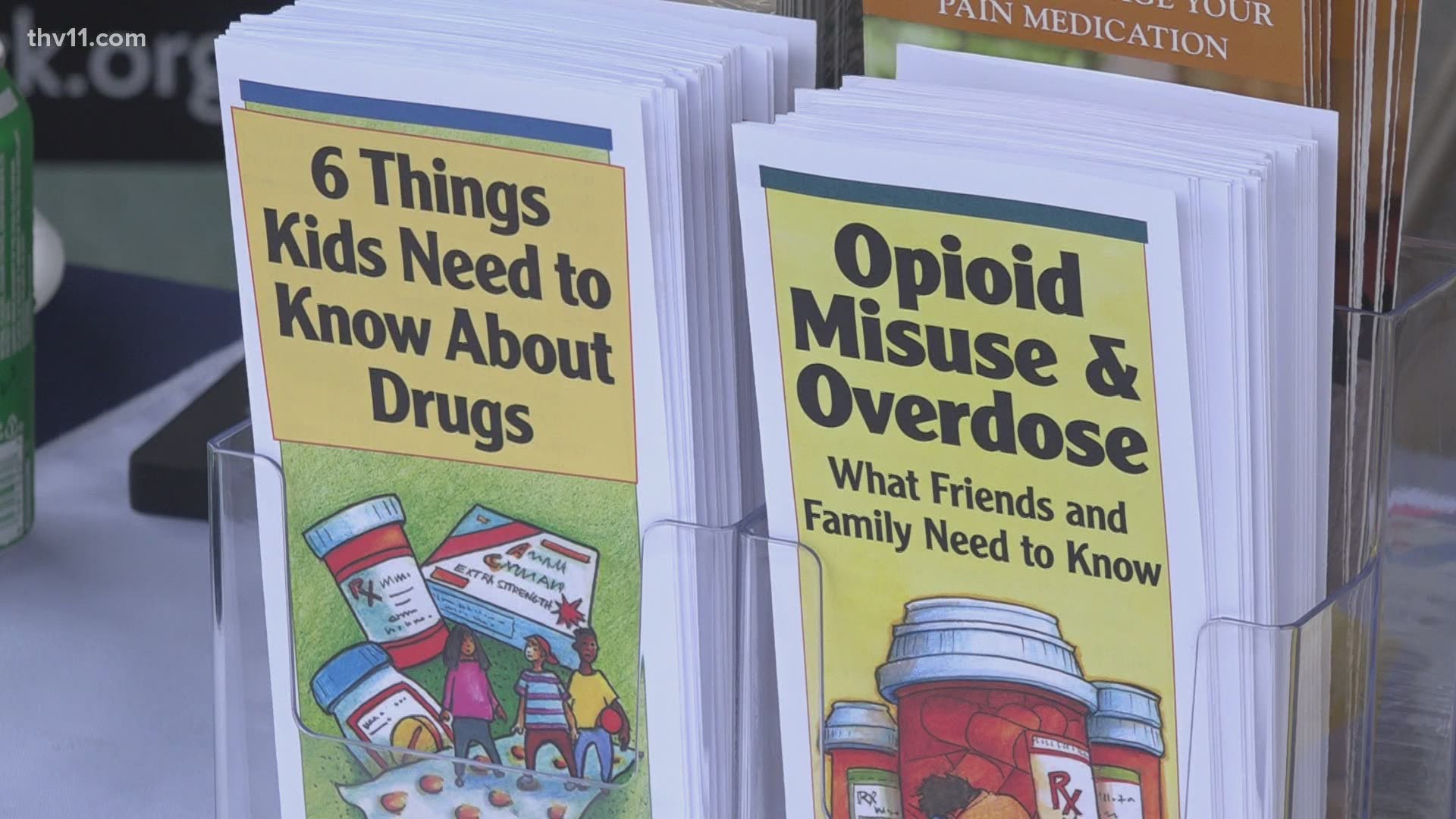HOT SPRINGS, Ark. — On the day Arkansas and law enforcement agencies across the country hold the semi-annual Drug Take Back event, designed to get old and leftover drugs out of home medicine cabinets, the Hot Springs Police Dept. is looking toward a next-level program that helps kids caught-up in the turmoil of homes upended by opioid addiction.
RELATED: Two Arkansas healthcare providers create first-ever substance use disorder program in the state
"Hot Springs has a new police chief, who I feel really gets this program," said Kirk Lane, the Arkansas Drug Director, explaining why he spent his morning at the HSPD's drive-thru event.
That new chief, Chris Chapmond, is four months into the job at the head of the force. He spent 22 years in his hometown before taking leadership jobs out of state. His years as an assistant chief included close ties with the University of Arkansas's Criminal Justice Institute. That connection led him to bring a pilot program designed to help drug endangered children.
"We played, as a department, an instrumental role in helping develop it here in Hot Springs," Chapmond said, crediting Dr. Cheryl Mays of the Criminal Justice Institute for spearheading the concept in Arkansas. "Bottom line is this: It's taking a multi-faceted approach to how we help our children."
D.E.C. programs center on the idea that police responding to an opioid crisis event should work with youth services to help kids caught up in those events, either as users or at risk because of their caregivers.
"The main purpose of the drug-endangered children program is to develop relationships and partnerships with other stakeholders in your community," Chapmond said. "Then, you leverage those connections to find the best ways to help those kids when we come in contact."
Common situations could include involving Department of Human Services workers early in a crisis or bringing in local treatment providers who specialize in children.
Ouachita Children's Center had members of their prevention team on hand for Saturday's take-back event. The D.E.C. concept might lean on the non-profit's intervention teams to get involved with a police case.
Like the overall drug fight, success in these programs will take a while to be measured, but with hundreds of collaborations already, according to Chapmond, the fight looks win-able.
"At the end of the day, if you've got one success story, that's one success story we didn't have before we started working together," he said.

